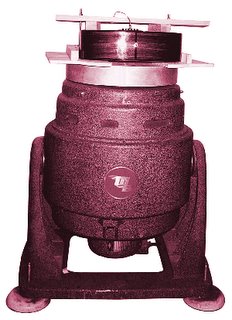Vibes

The question touches on a truism I heard as a new guitarist many years ago and which I repeated to others for a long while before I understood what it meant: that as an acoustic guitar ages its sound becomes better and better. That is actually only part of the story, since it is not merely age that improves an acoustic: it has to be played, and played constantly, because it is not time that enhances the sound but the vibration of the guitar as it is played.
Why is this so? Luthier Rick Turner explains it this way:
The reasons for the improvement have to do with subtle changes in the stiffness and flexibility within the cellular structure of the wood, as well as the hardening of resins within the cells themselves. Also, the finish ages, changing the flexibility of the surface of the top. With lacquer, the most common finish on guitars, the finish film loses plasticizers, making the finish more brittle over time. These changes usually take many years. In the final analysis, it seems that the major change is to the wood itself, with the top leading the way as the major tone-producing element.
We know that guitar tops vibrate in distinct patterns at different frequencies; some areas (nodes) hardly move, while other areas move in and out dramatically. These Chladni patterns, named for the first researcher to do a scientific study of plate movements, are predictable and have been the subject of intense study for disciplines ranging from lutherie to rocket science (really!). It is not a stretch to see that as a guitar is played, certain nodal patterns are continually flexed and thus loosen up while other areas move little and get stiffer. Those patterns are "set" as the wood ages and the cellular structure takes on a certain memory of the vibrational frequencies most often encountered.
Some guitarists actually place their guitars against speakers that play music all  day long so that the wood would vibrate constantly, thus speeding up the process. There is also a machine (pictured at right) that shakes the guitar and gives it the equivalent of years of use – in just 45 minutes! Since this machine is not available here in the
day long so that the wood would vibrate constantly, thus speeding up the process. There is also a machine (pictured at right) that shakes the guitar and gives it the equivalent of years of use – in just 45 minutes! Since this machine is not available here in the
By the way, this improving-with-age thing only works for acoustic guitars with solid tops. If you have a guitar with a laminate or plywood top, expect its sound to worsen as the years go by, which is the main reason I always advise those who are in the market for acoustic guitars to go for quality (i.e. solid tops) even if they’re more expensive.
And yes, Anonymous, the spiritual parallel here is that the more we allow the Lord to “play” us, the better we will become.




0 Comments:
Post a Comment
<< Home